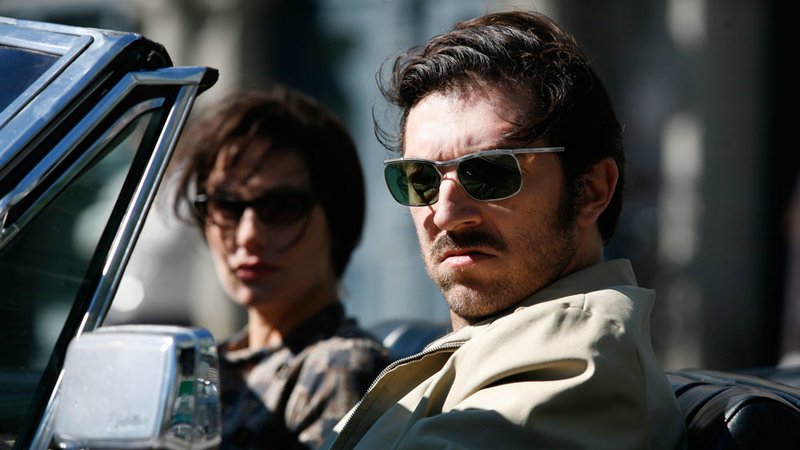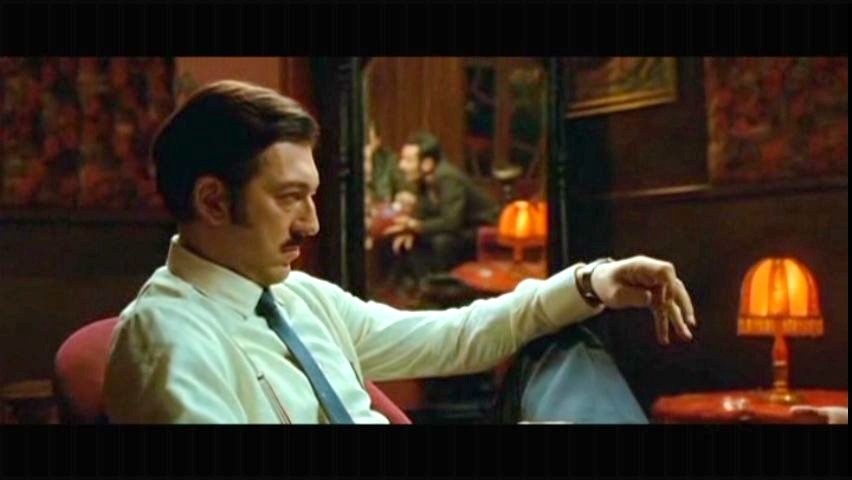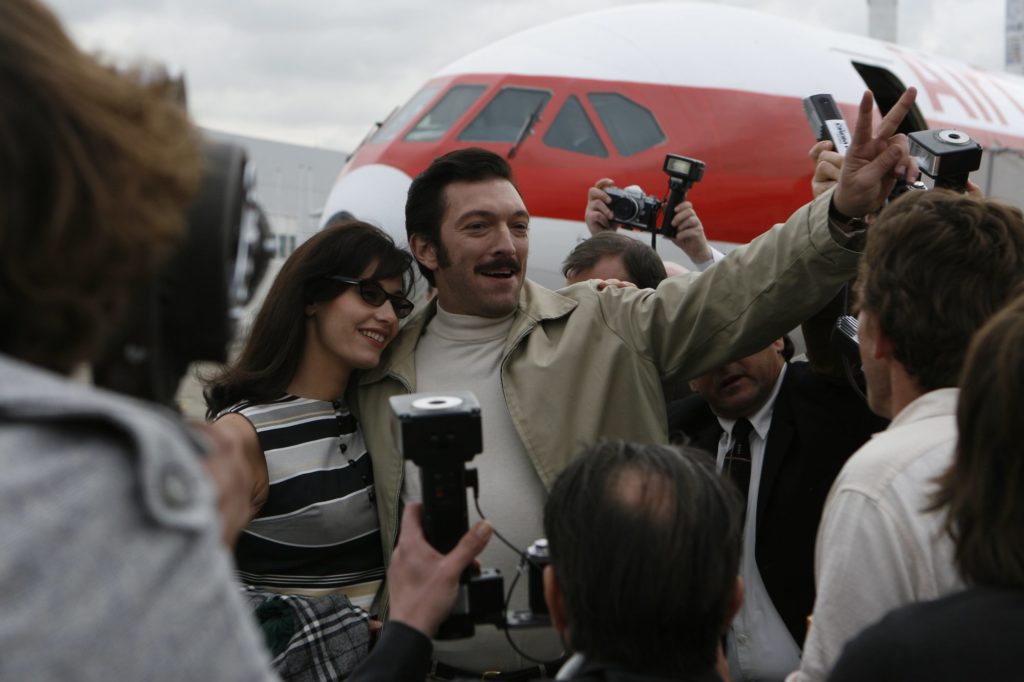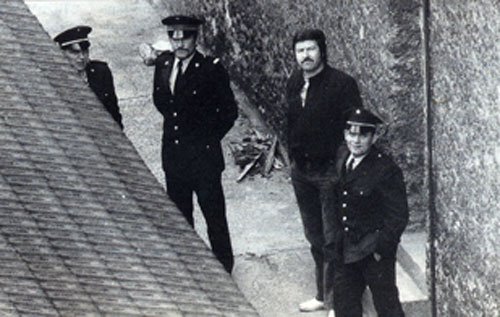
I have rarely been so entranced by what is primarily an action movie. So far-reaching is the protagonist’s mayhem that it took two full-length films to show just pieces of his exploits. There could easily have been a third.
Part 1 – Killer Instinct
Part 2 – Public Enemy No. 1
The saga begins in the early 1960s when Jacques Mesrine (Vincent Cassel) struggles with his post in Algeria. He is assigned to rout out revolutionaries in Algiers and punish with no mercy (these scenes harken back to the equally suspenseful Battle of Algiers). Clearly conflicted, he returns home – to live with his parents. His disillusionment is not unlike those returning from World War I, confused by their elders’ insistence that war is honorable, as is a quiet home and a respectable job.
Home life doesn’t agree with Mesrine, but he finds that bank robbing holds a thrill, and a paycheck, he can’t resist. He becomes more embroiled in the criminal underworld and his “legitimate” life begins to crumble. His wife and kids suffer from his short temper and angry outbursts. He is finally apprehended and jailed for a number of years before he manages to escape (the first of many times). The mood slowly morphs from bebop-infused heists (in which Mesrine insists no one is hurt and only the thieving banks suffer) to dark, solemn, psychologically-disturbed crime.

Cassel very expertly draws this enigmatic character. He will wink and give a half smile that elicits a chuckle, then scrunch up his nose in a sneer that is frightful. Though Mesrine has no problem shooting police officers and stealing money, he is also incredibly charming, a stalwart friend and a fantastic cook. He has never gone back on a promise and never hurts an innocent bystander. The gendarmerie have labelled him Public Enemy #1, but the public are not so quick to condemn. He is a modern Robin Hood.
By the second film, Mesrine (that’s MAY-reen) is struggling with this public image. At once admired and reviled, he begins to lash out at those who try to quell his ideas. He attempts to develop his stance as a revolutionary — fighting against inhumane treatment in prison (like those he suffered), in addition to bringing attention to unfair banking practices and those who control them.

Yet he can never quite reconcile himself with the absolute ruthlessness needed to achieve widespread change. He has a tender side, which he often has trouble dealing with. It’s as if two halves are constantly battling one another — and it’s devastating, yet incredible, to watch. We too, as the audience, are at the same time intrigued and repulsed by the outlaw. Perhaps the only thing that is clear is that the ineffectual Paris police force (portrayed as little better than a team of Inspector Clouseaus) caused an unfair end to Mesrine.

The Mesrine Saga is a taut and exciting portrait of a man who really existed. It is a fun crime thriller to be sure, but it also explores what is means to “exist” and the idea that exterior perception can affect interior reality.
____________________
Many thanks to Psychotronic Films for screening these movies, and to Muse Arts Warehouse for hosting.
View trailers of the films here.
